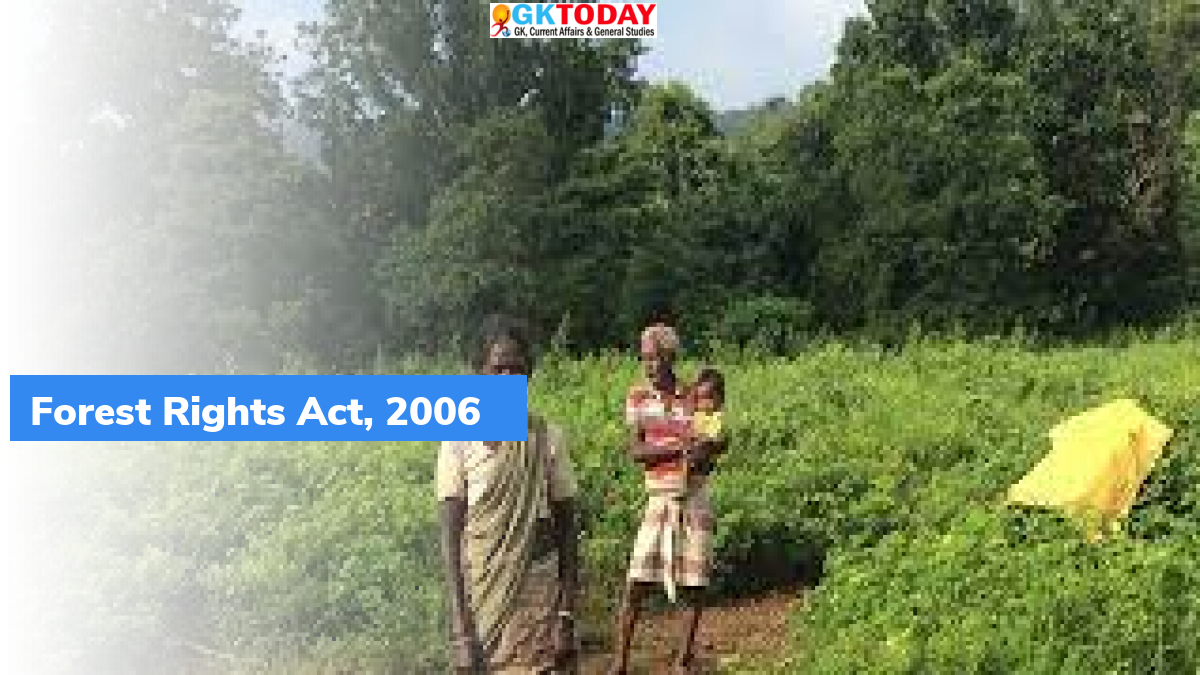Challenges of Forest Rights Act
The Scheduled Tribes and Other Traditional Forest Dwellers (Recognition of Forest Rights) Act, 2006, also known as the Forest Rights Act (FRA), was intended to empower forest dwellers in India. Sixteen years after its implementation, challenges remain. A recent study brought into light that only a few states have effectively recognised Community Forest Resource (CFR) rights. Violations of these rights persist across many regions, undermining the Act’s objectives.
Current Status of CFR Rights
- Only three states have recognised notable CFR rights.
- Maharashtra is the sole state where these rights have been operationalised.
- Other states show minimal progress. For instance, Chhattisgarh and Odisha have recognised only 36% and 10% of potential CFR areas, respectively.
- Many states, including Madhya Pradesh and Karnataka, have yet to acknowledge any rights.
Displacement of Forest Dwellers
Over 100,000 forest dwellers have been displaced due to the establishment of protected areas by the National Tiger Conservation Authority (NTCA). This includes the relocation of over 64,000 families from core tiger reserve areas. The increase in protected areas by 72% since 2000 has often led to the eviction of local communities.
Impact of Development Projects
Development projects have diverted over 300,000 hectares of forest land for mining and infrastructure. The push for economic development often overlooks the rights of forest dwellers. Recent policies, such as the Green Credits Rules, failed to address community rights adequately.
Green Displacement and Carbon Forestry
Concerns have been raised about carbon forestry projects. These initiatives, aimed at sequestering 2.5 gigatonnes of CO2, may lead to further displacement. The potential for green displacement exacerbates the struggles of communities already affected by conservation efforts.
Community Mobilisation and Hope
Despite the challenges, there is hope. Maharashtra has shown that community mobilisation can lead to positive outcomes. In Gadchiroli district, local communities have formed institutions that empower them as rights-holders. This has resulted in improved local employment and forest conservation. Other states are now seeking similar involvement in managing protected areas.
Policy Changes and Their Effects
Post-2014 amendments to the Forest Conservation Rules have resulted in further violations of forest dwellers’ rights. The 2022 rules have diluted processes for recognising community rights. Applications for mining clearances have largely ignored these rights, leading to ongoing conflicts.
Month: Current Affairs - February, 2025
Category: Environment Current Affairs








